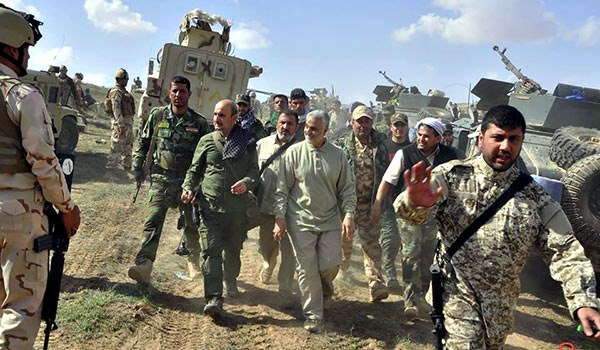
RNA - As for the toxic ally United States, the Iraqi government complains that the US is using white phosphorus munitions in densely populated parts of the Old City in Mosul. Iraq also complains that their use is becoming even more widespread, with new reports suggesting that the US is also using such shells in Syria.
Though white phosphorus shells are not uncommon in the military, and often used as smokescreens, the high temperature at which it burns, and the toxic chemicals emitted makes them wholly unsuitable for populated areas, and their use in any densely populated area or as an incendiary are widely considered war crimes. These are the same munitions that Israel used in its last wars on Lebanon and Gaza.
In the cases where images are emerging, they are definitely in densely populated areas, with both Mosul and Raqqa clearly facing the use of white phosphorus. The US would neither confirm nor deny the use, though Pentagon officials do claim that if they were using them, it was in keeping with their ongoing efforts to limit the number of civilians they killed!
That assurance is less and less valuable, as US airstrikes are killing soaring numbers of civilians in Mosul and Raqqa at any rate. Rights groups are warning that the use of the shells in populated areas is an undue risk, and they are seeking more information on the context in which they are being deployed. The increasingly secretive Pentagon is doubtlessly not going to comply with that, nor will its NATO and Saudi allies.
As for Iran, Iraq’s regular army would very much like to liberate the remaining parts of Mosul without Pentagon involvement and without any consultation with the US administration. After all, it is one of the biggest offensives yet against the terrorist group of ISIL, and Iraq isn’t going it alone. Iran is taking a key role in the offensive, backed by allied Sunni-Shiite forces, artillery and air power. With the liberation of Mosul going well, the US is still on the outside looking in – or above bombing civilians, leaving the Pentagon complaining that Iran is taking their role on the ground as leader of the Mosul offensive.
This has further irritated US officials, admitting that the Iraqis refuse to inform them in advance of any new operation and have yet to request assistance publicly. To do some damage control, they are now claiming that the battle has a sectarian tenor - despite the fact that allied Sunni-Shiite irregular troops are taking the lead and have in fact reached the Iraqi border with Syria.
Credible reports indicate Iranian military advisers are also coordinating the attacks and helping them to operate artillery, rocket-launcher systems and surveillance drones. It’s all the reason why US Army generals refuse to say Iran’s involvement is a positive thing. Those who destabilized the region for nefarious reasons and ignited the powder keg of sectarianism would always try to make it look otherwise.
Whatever this is, the Mosul offensive is not a sectarian battle or proxy warfare to assert hegemony over neighbors. It’s a battle against ISIL and its evil ideology. Under a special political arrangement, good governance is the ensuing strategy. Once the allied forces evict the death cult, as was the case in Tikrit and Aleppo, a local government will be formed to involve all the inhabitants of the city, regardless of their ethnic, religious and ideological differences. Locals will control and manage the liberated areas while the Iraqi army and allied forces continue their next push: Helping Syrian armed forces liberate Raqqa.
For those who claim it is not the military but the political consequences of the fighting that worry them, it suffices to remind that the Iraqi government and parliament comprise of Sunni, Shiite and Kurdish politicians and representatives. Subsequently, liberation is not dead on arrival, as the central government has begun promoting good governance. The liberated parts of the city and surrounding areas have already accepted rule by the central government and this is not a long shot.
No doubt, the Iraqis will soon liberate their country and enhance democratic governance and civil rights, particularly promoting bipartisan participation in security, encouraging transparency and accountability, and addressing reform and leadership. As for those who cannot stand the idea that Iran is behind this new-found development, the message couldn’t be more clear:
In light of the twin terrorist attacks in Tehran on May 7, and to the increasing disadvantage of the US and its Israeli-Saudi allies, the world community has decided to express solidarity with the Iranian nation; a major part of the world supports Iran’s lawful war against terrorism and extremism; terrorism victim Iran is the leader of the Real War on Terror, and there is little Washington and the mere extras can do to influence the course of events in Iraq and Syria.
847/940